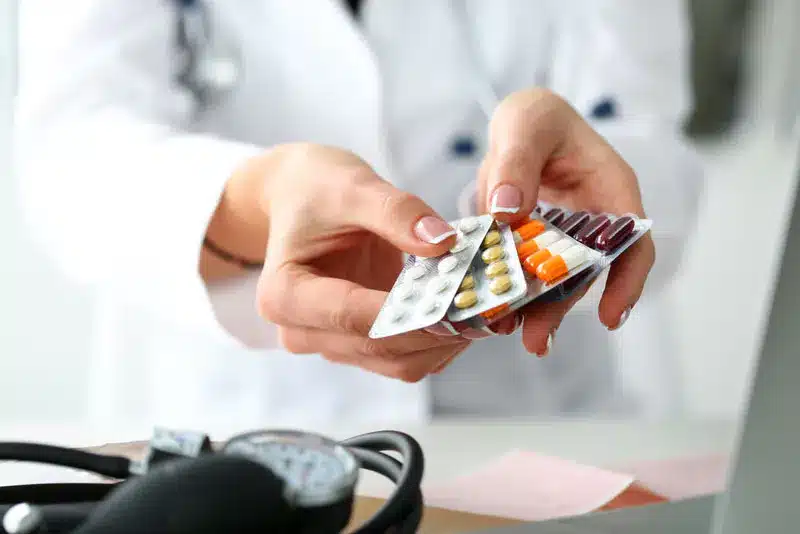Erectile dysfunction is a prevalent condition experienced by men over the age of 40. Around 10% of men between the ages of 40 and 70 experience total erectile dysfunction, which is characterized by the inability to achieve a sufficiently lasting erection for sexual activity. Moreover, within this age group, approximately 35% of men encounter intermittent episodes of erectile dysfunction. Although less frequent, this condition also affects 5% to 10% of individuals under the age of 40.
Obesity tied to ED
Within the United States, the occurrence of erectile dysfunction can be attributed to diabetes and obesity, resulting in approximately 8 million diagnoses. Research studies have indicated a direct correlation between body mass index (BMI) and the likelihood of experiencing erectile dysfunction. As BMI levels increase, the probability of encountering this condition also rises.
What is BMI?
BMI, which stands for “Body Mass Index,” is a numerical value obtained by dividing a person’s weight in kilograms by the square of their height in meters. It is important to note that BMI does not directly measure body fat and does not consider factors such as age, sex, ethnicity, or muscle mass. Nevertheless, an individual’s BMI tends to fluctuate in accordance with their body fat percentage, and a higher BMI has been associated with a higher likelihood of experiencing erectile dysfunction.
Losing weight may reverse erectile dysfunction
In the aforementioned study, a group of 110 men classified as obese, aged between 33 and 55, participated in a two-year program involving exercise and dietary improvements. By the end of the two-year period, the participants experienced an average weight loss of 33 pounds. Notably, around one-third of the participants reported a notable enhancement in their ability to attain an erection.

Obesity is a high risk factor for ED
The majority of men, specifically four out of five, who experience erectile dysfunction have a BMI exceeding 25. Moreover, individuals with a BMI surpassing 28.7 face a 30% higher likelihood of developing erectile dysfunction. To provide some context, a man who is 6’0″ tall would weigh approximately 210 pounds to reach that BMI threshold. It’s worth noting that being overweight not only increases the risk of erectile dysfunction but also exposes both men and women to other health concerns, including heart disease, high blood pressure, and type 2 diabetes.
Other conditions which raise risk of ED
Men who have conditions such as high blood pressure, diabetes, or pre-diabetes are at an elevated risk of experiencing erectile dysfunction. Additionally, those who engage in heavy alcohol consumption or take certain blood pressure medications are also more susceptible to this condition.
Why does obesity raise the risk of ED?
In essence, excess weight hampers the flow of blood in the body. Similar to how alcohol and certain heart medications can lower blood pressure and increase the likelihood of experiencing erectile dysfunction by reducing blood circulation to the penis, being overweight narrows blood vessels, leading to a similar effect of restricting blood flow necessary for achieving an erection.
Obesity may harm blood vessels
Even healthy young individuals who gain as little as 9 pounds of fat in their abdominal area are susceptible to developing endothelial cell dysfunction. These cells play a crucial role in lining blood vessels and regulating their ability to expand or contract. This condition is linked to a higher risk of coronary artery disease and other cardiovascular complications.
In individuals who experienced weight gain in their abdominal region, specifically in the form of visceral fat, researchers discovered that despite maintaining healthy blood pressure, the regulation of blood flow through their arm arteries was compromised due to endothelial dysfunction. However, when these volunteers successfully shed the excess weight, the blood flow was restored to normal levels.

Can ED be reversed without medication?
In a comprehensive study tracking 810 men who encountered various forms of erectile dysfunction, remarkable progress was observed in reversing the condition. Over a span of five years, approximately 29% of the men were able to successfully reverse erectile dysfunction through natural methods. The study further revealed that even in cases where men relied on medication for treatment, addressing lifestyle factors significantly enhanced the effectiveness of the medication.
The lead author of the paper, Dr. Sean Martin from the University of Adelaide's Freemasons Foundation Centre for Men's Health, says: "Even when medication to help with erectile function is required, it is likely to be considerably more effective if lifestyle factors are also addressed.
Medication to control obesity
Orlistat
If you are struggling with erectile dysfunction and suspect that your weight might be a contributing factor, it is advisable to consult your doctor regarding Orlistat. Orlistat, also available under the brand names Alli or Xenical, works by inhibiting the absorption of fat in your digestive system, thus aiding in weight loss. By incorporating Orlistat into your regimen, you may achieve faster and more significant weight loss compared to relying solely on diet and exercise.
Rybelsus
Rybelsus is a medication that is primarily used for the treatment of type 2 diabetes, but it has also shown potential in aiding weight loss. It contains the active ingredient semaglutide, which belongs to a class of drugs called GLP-1 receptor agonists. When taken orally, Rybelsus works by mimicking the action of a hormone called glucagon-like peptide-1 (GLP-1), which regulates blood sugar levels and appetite. By activating GLP-1 receptors in the brain, Rybelsus helps to reduce appetite and increase feelings of fullness, leading to a decreased caloric intake. This can result in weight loss as part of a comprehensive treatment plan that includes a healthy diet and exercise. It is important to note that Rybelsus should only be taken under the guidance and prescription of a healthcare professional.
Medication to help with ED
Various widely-used medications are available to assist with erectile dysfunction. If you are overweight and require assistance in achieving an erection before weight loss, you can consider purchasing sildenafil or other well-known erectile dysfunction medications like Cialis(Tadalafil) or Levitra. These medications can provide the support needed while working towards weight loss goals. However, it is crucial to consult with a healthcare professional before starting any new medication.
Conclusion
If you are overweight and encountering erectile dysfunction, shedding the excess weight could potentially reverse the condition. Furthermore, even if complete recovery from erectile dysfunction is not achieved, losing weight can enhance the effectiveness of ED medications. It is advisable to consult your doctor at the earliest opportunity to devise a suitable plan for addressing both your obesity and erectile dysfunction concerns.
Sources:
https://www.healthline.com/health/erectile-dysfunction/weight-loss-and-ed
https://rexmd.com/learn/can-weight-loss-treat-erectile-dysfunction
https://www.webmd.com/men/weight-erectile-dysfunction
https://www.verywellhealth.com/obesity-and-erectile-dysfunction-5202283







